Diplomat Olexander Scherba: "Being honest about our history is part of our transformation to a better nation on the path to United Europe"
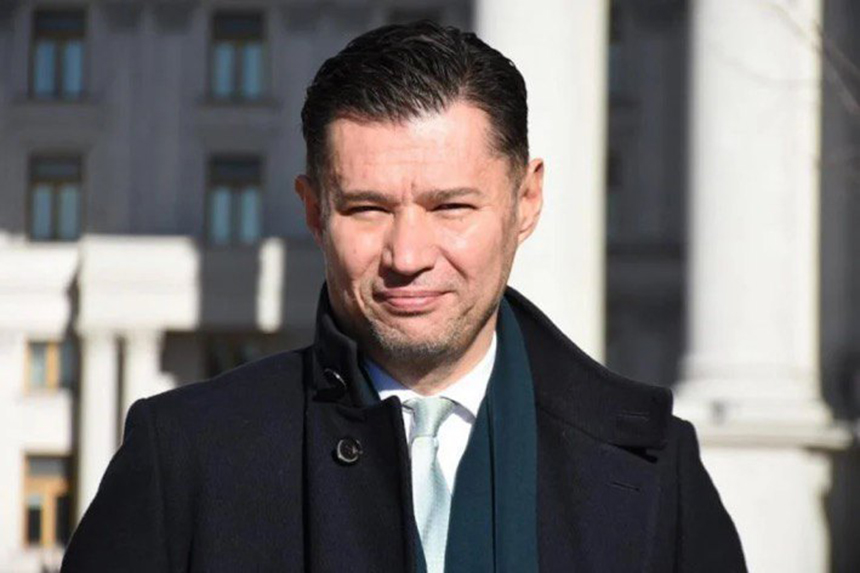
Originally appeared in Ukrainian @lb.ua
Marta Konyk
Olexander Scherba is a diplomat, author, and ambassador-at-large at Ukraine's Ministry of Foreign Affairs. In 2024, he chaired the jury of Encounter: The Ukrainian-Jewish Literary Prize, which addresses the common historical experience and dialogue of the two peoples. The prize is awarded for the most influential work of literature and non-fiction in alternate years. Sofia Andrukhovych's Amadoka won the prize in 2023. Yuriy Skira was the winner with his book Solid. The Life-Saving Footwear Factory in 2024. In this interview, Olexander Scherba discusses his career as a diplomat, the job of a speechwriter, the mission of diplomacy, and the opportunities that open up through archival research and reading historical books.
Could you tell us about your activities on the jury of Encounter: The Ukrainian-Jewish Literary Prize?
I’ve never been a member of a literary jury, let alone its head. So, it was a rather unique experience, for which I am immensely grateful. Throughout my diplomatic career, I did a lot of writing myself — as a speechwriter and as a columnist for one of Ukraine’s central newspapers. But of course, assessing the work of others is different and doubly responsible.
From the viewpoint of world literature, this is a niche award, but it is important for Ukraine. The history of Ukrainian-Jewish relations is still to be duly told, for Ukraine’s sake, just as much as for Israel’s. It’s about us Ukrainians understanding better who we are, where we come from, where our strength lies, and sometimes what our sins are. We need to be honest about our history. Among other things, it’s part of our transformation into a better nation on the path to United Europe.
The national history combines millions of individual stories that run through our families. Many of us Ukrainians have one or another form of Jewish connection. Mine, for instance, goes through my wife, whose grandfather, Abram Davydovych Zamykhovsky, became, in 1931, at the age of 28, the youngest chess champion of the Ukrainian Republic. Just recently, I walked through Kyiv’s Jewish cemetery, where he is buried. Many graves have inscriptions in Ukrainian and Hebrew, Ukrainian and Yiddish, Russian and Yiddish. When looking at them, one realizes that a huge part of our Ukrainian history was forgotten when so many Jewish Ukrainians left in the 1990s. Yet, I hope it wasn’t lost for good.
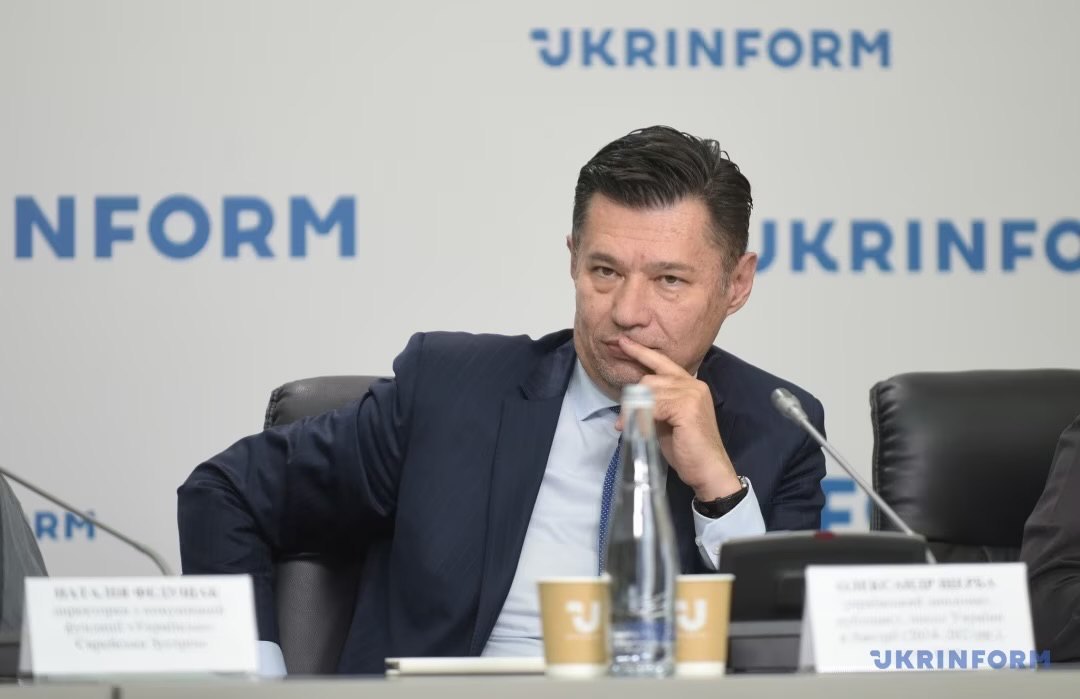
What do Ukrainian-Jewish relations look like now in terms of diplomacy?
If you mean our relations with the State of Israel, they’re good. I can’t say that this is my area of expertise, but just the number of Israeli citizens fighting in this war on our side speaks volumes. As to the role of ethnic Jews being part of Ukrainian society — their role and position is unequivocal too. We are having this conversation on a sorrowful day when people pay their last respects to the son of the Chief Rabbi of Ukraine, who gave his life fighting for Ukraine in this war. What can be more symbolic than this? Ukrainian-Jewish relations, like Ukraine itself, are going through a tragic moment of truth. And the truth is: we love this country, and we need each other.
Culture and diplomacy appear closer to each other in Ukraine than ever, given the reformed Ministry of Culture and its new head [diplomat Mykola Tochytskyi — Ed.]. What do you think about the work done by this ministry?
I am not that familiar with this ministry's activities yet [as of September 2024 — Ed.] and have had little interaction with it, but I know the minister quite well. He is a skilled diplomat and a true patriot. I am always impressed by diplomats who can speak clearly and yet remain subtle. Minister Mykola Tochytskyi is one of them.
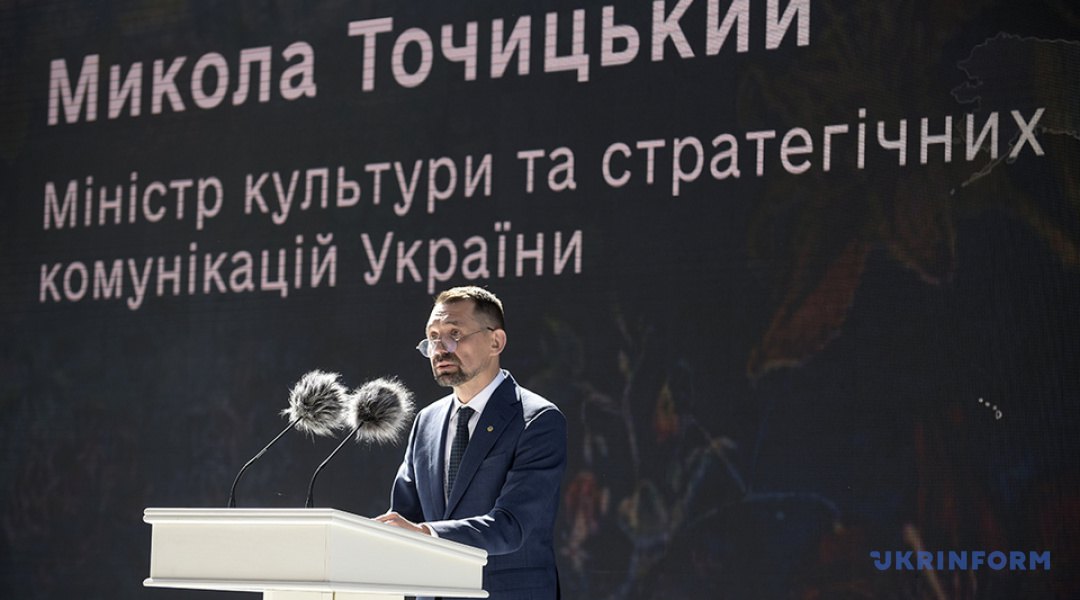
As an expert in strategic communications, do you think adding strategic communications to the Ministry of Culture was appropriate?
A large part of the world does not know or understand Ukraine as well as it should. Ukraine's story has not been told yet. And it is a story that has to be told differently in different parts of the world. The same message, with different words and a different tone of voice. Now, a separate ministry has been charged with doing that. This is, if you will, the highest form of commitment to the task.
Telling the truth in a post-truth world isn’t easy. As ambassador, I saw on many occasions the most powerful countries of the West fail to make a convincing case for what they do and want in Latin America, Africa, and Asia — all parts of the world where the wave of anti-Western sentiment is consistently on the rise. Sadly, it’s also Ukraine’s problem, as the anti-Western sentiment much too often becomes an anti-Ukrainian one.
In 2021, you published Ukraine vs. Darkness: Undiplomatic Thoughts, your book based on your 25 years of experience representing Ukraine. Back then, this book was about Ukraine’s future. Many of your predictions, sadly, became Ukraine’s reality. How do you feel about them now?
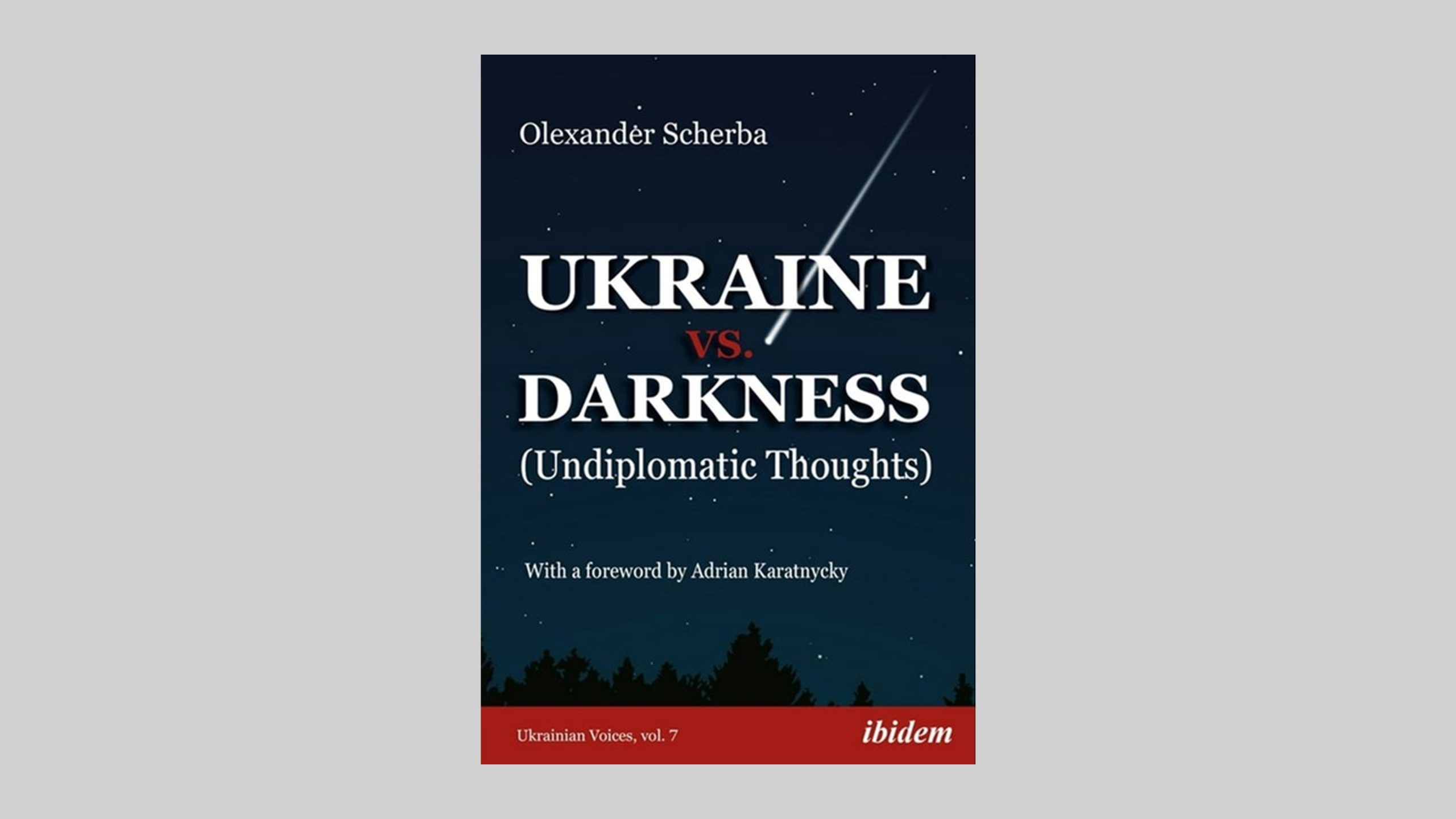
When writing this book, I tried to be as sincere and open as possible for a diplomat. I can’t say it was too hard. As a speechwriter, I always enjoyed more freedom within our system than is usually granted to conventional diplomats. For many years, free thinking was one of the things my bosses expected of me. Of course, it helped when writing this book. Yes, it’s a dark one — in tone and predictions. On the other hand, what else was to be expected after representing Ukraine, a country at war, in a neutral country like Austria for six years? And yes, many of my dark predictions came true — which doesn’t give me pleasure at all.
Why did you decide to become a diplomat?
Becoming a diplomat was never a dream of mine. I didn't understand the fun or the sense of it. Standing at a reception in a tuxedo, drinking martinis, and making empty chatter — this was my understanding of “diplomacy.” In my eyes, it didn’t qualify as a solid job. Yet, time and again, life pushed me in this direction. At some point, I entered the service just to try it out and maybe look for something better. As it turned out, I didn’t need to look any further. This was a job for me. It had nothing to do with all the cliches about diplomacy I had in my head.
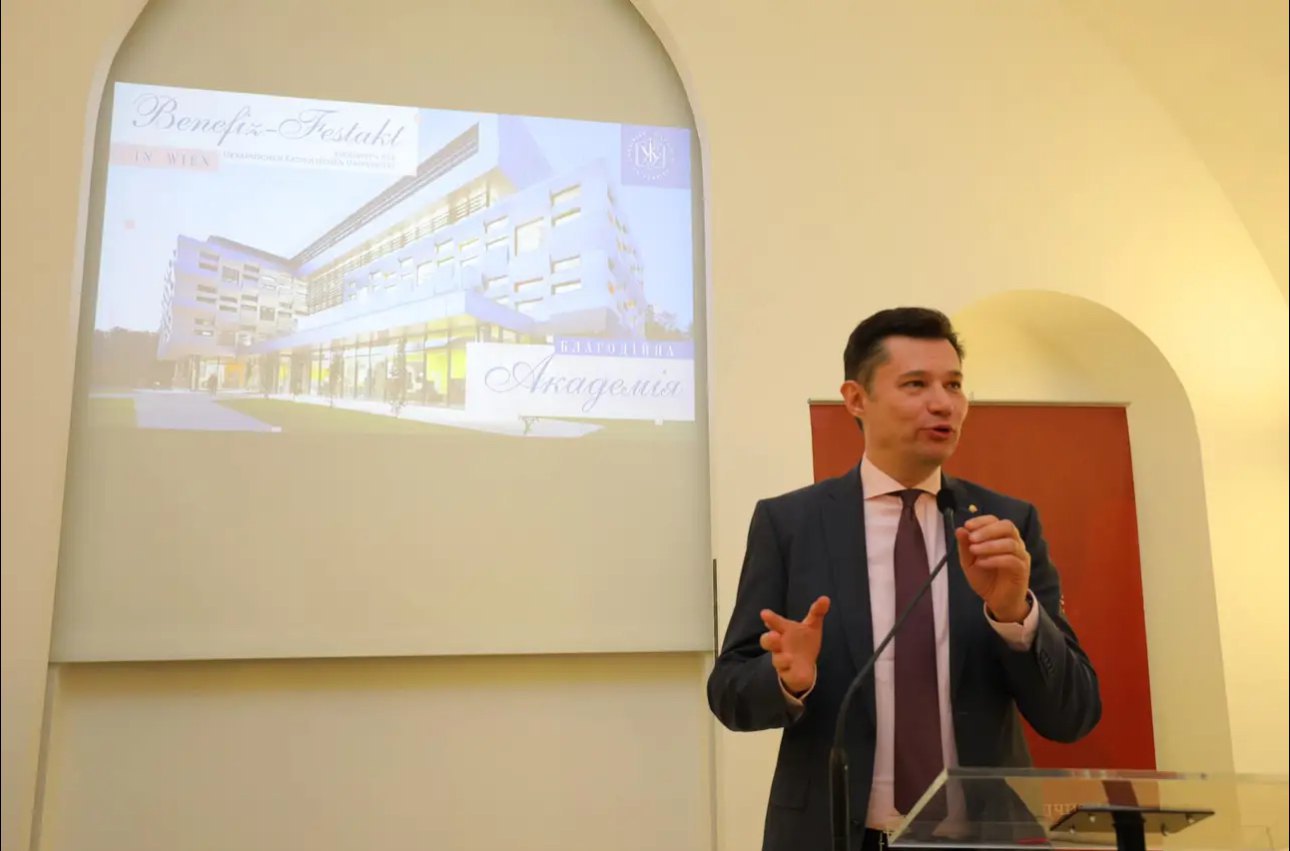
Diplomacy seems to be another dimension of the art of using words. How do you see the art of diplomacy?
Diplomacy is a big umbrella for a whole bunch of occupations. For instance, it is one thing being a consular officer, helping your compatriots abroad, providing assistance in dire situations, and quite another — operating in political diplomacy, telling your country’s story, gaining friends and influence. I agree with those who see diplomats as a kind of closed cast, a group of people whose mission is, ideally, to make this world less crazy and more understanding of each other. Sometimes it works out, and sometimes, sadly, it doesn’t. But, for the most part, not for the lack of trying by diplomats.
What are your goals in diplomacy?
For me, nothing is more important now than telling Ukraine’s story to the world. We are at war for our right to exist. We aren’t as rich and omnipresent in the world as our enemy, but we have one thing that works for us — truth. We just need to be better at telling it. For instance, when talking to the countries of the so-called “Global South,” we need to show that this war is a war of a former colony against a former empire dragging into its shadow. When speaking to our Western partners, we need to show that Putin's appeasement is just as dangerous and self-destructive as the appeasement of Hitler once was.
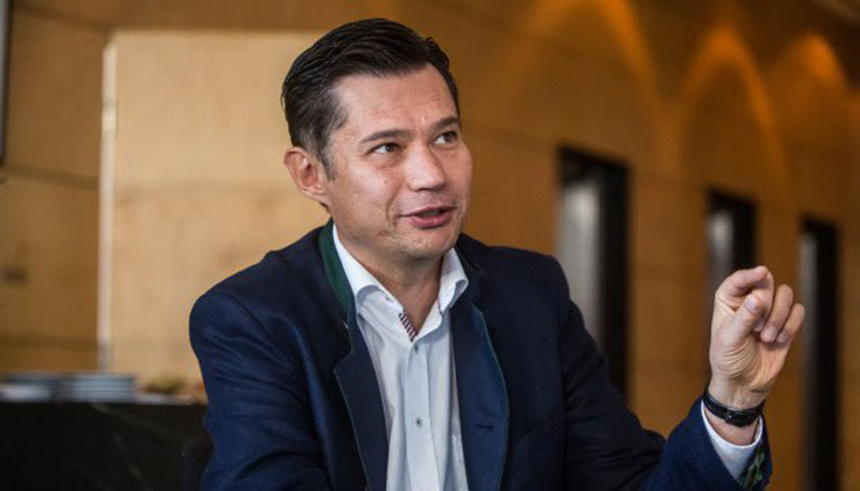
What did you learn in the United States as a counselor at the Ukrainian embassy in Washington when you liaised with the US Congress and Jewish organizations?
Oh goodness, how do you condense 4.5 years, spent for the most part on Capitol Hill, to one short answer? The most important thing was this: I met many good people and learned much from them. I fell in love with the United States and made many friends. As long as we are on the topic of Ukrainian Jewish history, many of them were Jewish Americans with a Ukrainian background, speaking fondly of Ukraine.
Now, with the war ongoing, I speak with them, and they’re fully on our side —wholeheartedly and passionately. Perhaps this is the accumulation of human friendship, which should also be part of a diplomat's work. I like to quote Talleyrand, who kept instructing French diplomats: “Make France loved!” These are the three words that sum it up for me, too: Make Ukraine loved. I believe my work in America has taught me a bit about how to achieve this.
Will Yuriy Skira's book Solid help your diplomatic work?

This is exactly the kind of Ukrainian story the world needs to know — profoundly human and compelling. It is a story of how the light of human self-sacrifice, mercy, and kindness begins to shine even amid absolute darkness. It is a story of how a group of Ukrainian priests radiated this light amid the worst horrors imaginable. In a way, this is a story of a Ukrainian Schindler's List.
On the other hand, it’s not your average feel-good book. It does not gloss over unpleasant aspects of Ukraine’s history. The author's simple and factual manner of writing adds to its persuasiveness.
Honestly, there’s something very wrong with the fact that Ukraine did not know this incredible story for so many years. Ukrainian priests rescuing Jewish families by employing them in a shoe factory, giving them a chance to survive through the hell of Nazi occupation in Lviv — it’s a story that needs to be told.
Marta Konyk, journalist
Translated from the Ukrainian by Vasyl Starko.



















